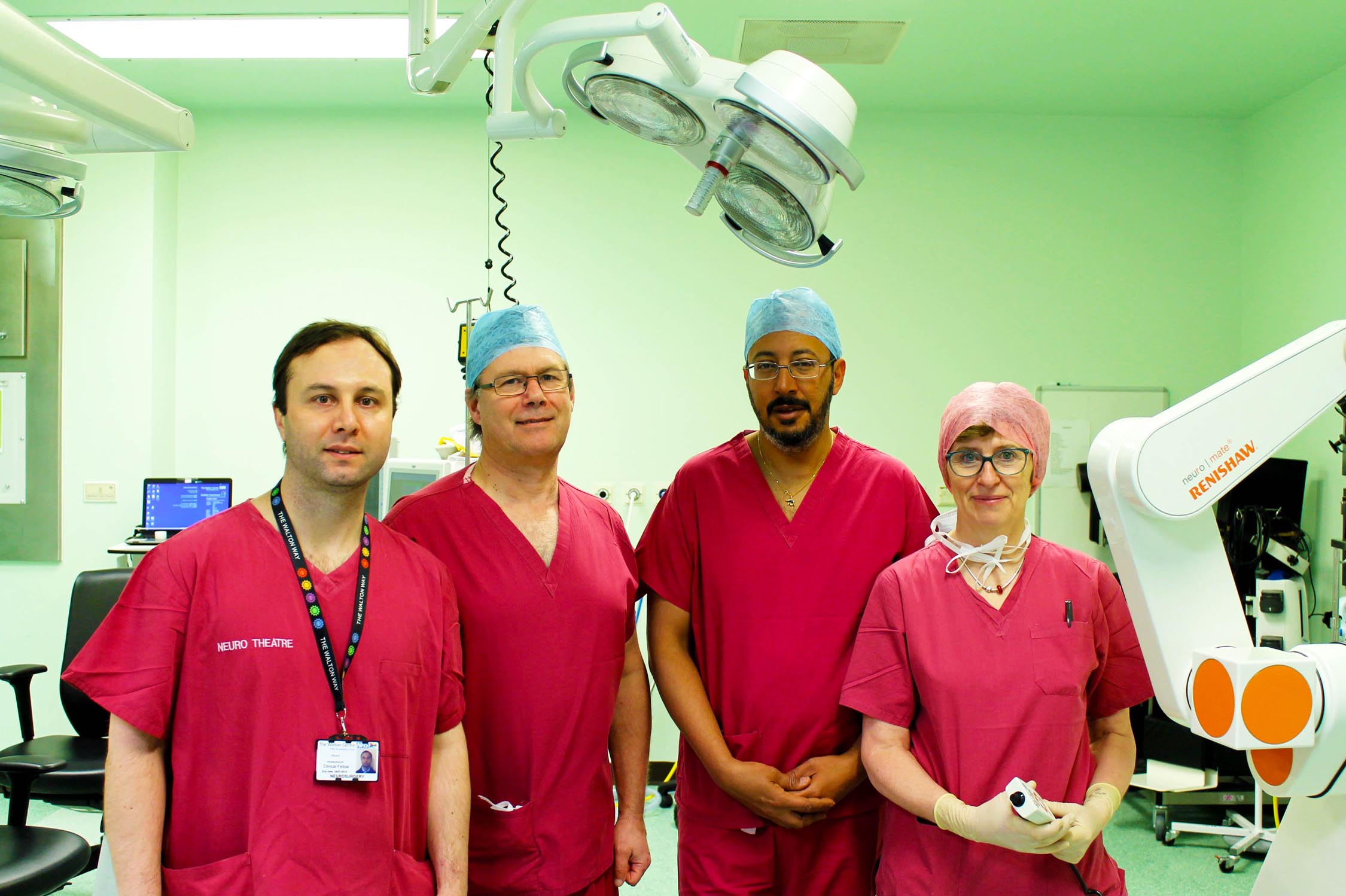Renishaw Neuromate Stereotactic Robot Assists SEEG Procedures
Neurosurgeons at The Walton Centre, Liverpool, UK, have recently carried out their first two stereoelectroencephalography procedures with the assistance of the Renishaw neuromate stereotactic robot

The Walton Centre is the only NHS Trust in the UK dedicated to neuroscience, and the staff includes many leaders in their areas of expertise. The procedures with a neuromate robot marks a transition to robot assisted neurosurgery which should see both patients and staff benefitting from reduced procedure times.
SEEG is a procedure used in the treatment of epilepsy. Multiple intracerebral electrodes are inserted into the brain in preplanned trajectories to gather data and map brain activity. By doing this, neurosurgeons aim to identify the region responsible for generating epileptic seizures. Once the epileptogenic region has been identified neurosurgeons can follow up with a tailored resection to remove the problematic tissue.
The epilepsy neurosurgery team at The Walton Centre is led by consultant neurosurgeons Prof. Paul Eldridge and Mr Jibril Osman-Farah, who estimate that the use of the neuromate robot will reduce procedure times significantly. Following the recent procedures, Prof. Eldridge and Mr Osman-Farah commented: “Accurate targeting by multiple electrodes is essential to understand the location of the epileptic focus, prior to consideration of its excision or ablation. Since there are multiple trajectories to be both planned and executed it is highly suited to a robotic system fulfilling the requirement for a repetitive stereotyped activity. Without the robot it becomes impractical to consider such a series of multiple electrodes in a reasonable length of time for the procedure.”
Renishaw’s neuromate robot can bring benefit to SEEG procedures by assisting with time-efficient positioning of electrodes and dramatically reducing overall procedure time. By accurately aligning the electrodes according to the neurosurgeons pre-planned trajectory, the neuromate robot helps ensure that neurosurgeons safely reach the targeted anatomy.
The Walton Centre, which was able to acquire the robot through charitable support, is now one of a growing number of hospitals worldwide benefitting from improved accuracy and reduced procedure times by working with the neuromate robot. Stuart Campbell, Clinical Sales Development Manager at Renishaw, added: “The time saved during this latest procedure is a great result for the neurosurgeons and for the patient. We look forward to working closely with the team so that patients can continue to benefit from this innovative technology.”
About Renishaw
UK-based Renishaw is a world leading engineering technologies company, supplying products used for applications as diverse as jet engine and wind turbine manufacture, through to facial reconstruction and neurosurgery. It has over 4,000 employees located in the 35 countries where it has wholly owned subsidiary operations.
For the year ended June 2017 Renishaw recorded sales of £536.8 million of which 95% was due to exports. The company’s largest markets are China, the USA, Japan and Germany.
Throughout its history Renishaw has made a significant commitment to research and development, with historically between 14 and 18% of annual sales invested in R&D and engineering. The majority of this R&D and manufacturing of the company’s products is carried out in the UK.
The Company’s success has been recognised with numerous international awards, including eighteen Queen’s Awards recognising achievements in technology, export and innovation.
CONTACT
Chris Pockett
Renishaw plc
uk@renishaw.com
www.renishaw.com
+44 1453 524524
Monday 30 April 2018 / file under Healthcare | Medical | Technology



